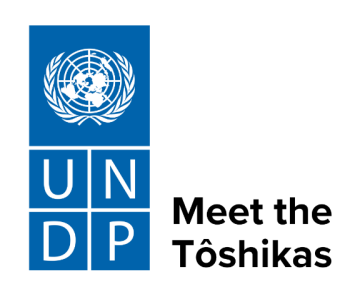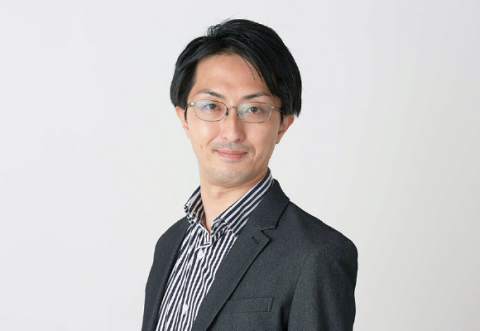News

The United Nations Development Programme (UNDP) is leading efforts to empower young entrepreneurs in Africa, providing vital policy guidance, technical support, and financial assistance. With funding from Japan's Ministry of Economy, Trade, and Industry (METI), UNDP is launching "Meet the Tôshikas," a pioneering project aimed at understanding and addressing barriers to growth and investment in African startup ecosystems.
Japanese investors, integral to such initiatives, bring not only financial backing but also expertise and networks, enriching Africa's startup landscape. Through "Meet the Tôshikas," UNDP aims to revolutionize investor engagement with African startups. In 2024, the project launched in Angola, South Africa, and Zambia.
To offer the investment and startup community, and concerned stakeholders across academia, policymaking, and business development, deeper insights into the investor landscape from a first-hand information point of view, we conducted interviews with two proven investors participating in the Meet the Tôshikas project.
This is part two of our interviews with the two investors participating in the UNDP Meet the Tôshikas project. To catch up on part one, please click here.
・Meet Social Impact Solutions Group (SIPS)
The second Japanese investor to participate in the UNDP Meet the Tôshikas programs is Social Impact Solutions Group (SIPS), which is a corporate group focused on "Diversity x Expertise" whose mission is to resolve global social challenges by bringing impact to society through innovative solutions. For the purposes of the UNDP Meet the Tôshikas activities, SIPS will be represented by two of its group companies: TSI-Japanand Japan Strategic Capital(JSC).



TSI and JSC have been important partners of UNDP throughout the program, participating in the entire selection process. Furthermore, TSI-Japan’s CEO Taka Kumagai and JSC’s Manager Kumiko Takekoshi were also invited to participate in the Ecosystem Field Trips held in Zambia, South Africa, and Angola from April 8 to 26, where they conducted Due Diligence with 30 startups. They also interacted with local investors, banks, and governments at the ecosystem events in 3 countries, and as panelists, they shared the perspectives of Japanese investors with African ecosystem players. They are planning to participate in the Japan Investor Roadshow and other events scheduled for August.
The most attractive and unique feature of this program is that investors are involved in the entire process from startup selection to investor matching, reflecting their expertise as investors from startup selection. We believe that the knowledge of investors is very important to improve the investment establishment of startups.
For this interview series, SIPS has granted us an interview with TSI’s CEO, Mr. Taka Kumagai.
・Meet TSI-Japan

TSI-Japan’s CEO: Takayuki Kumagai
Established in 2018 as a spinoff from Technology Seed Incubation Co., Ltd., founded on April 15, 2002, and later acquired by Tsucrea Co. Ltd., TSI-Japan stands as a venture capital and advisory firm headquartered in Tokyo. Specializing in the Southeast Asia and African markets, TSI-Japan is committed to fostering business creation and growth. Their support extends across various domains, including company establishment, investment, financing, market development, and business sales.
Please enjoy this interview!
Q. What motivated you to participate in the Meet the Tôshikas project in Africa?
At the group level, we have already invested in a total of three startups, two of which are in the healthcare sector in Nigeria, and one in the agricultural sector in Tunisia. Also, we have been collaborating with the Japan Internation Cooperation Agency (JICA on an entrepreneurship education project, sharing know-how with a university in Tunisia. We also are in the process of implementing an electric vehicle (EV) motorcycle business in Burkina Faso. While our footprint in Africa may not be extensive yet, we are gradually expanding our group's presence and engagement in the African continent.
Through these endeavors, we perceive Africa as a region with immense potential and opportunities. Despite the geographical and economic distances, we are optimistic about the prospects of building fruitful relationships and collaborations within the African continent.
While many Japanese entities limit their African engagements to large manufacturers, we believe there is significant untapped potential. Thus, our motivation to participate in the Meet the Tôshikas project stems from our vision of the future and our belief in the vast opportunities that Africa presents.
Q. What criteria do you value the most when selecting African startups to invest in?

Kumagai (right) listens intriguingly to a startup’s presentation
Our primary focus lies on the founders themselves. We assess their talent, abilities, philosophy, and overall approach to business. Founder-centric evaluation is paramount for us. Also, we consider the market potential of the startup. Beyond these fundamental aspects, our criteria may vary based on the startup's stage of development. For instance, at the seed stage, we may not heavily prioritize the credibility of the business model, as it may evolve with market conditions. In such cases, the character of the founders becomes crucial. However, for startups at stages A, B, or beyond, factors like business traction, stability, and growth take precedence in our investment decision-making process.
Q. What unique challenges and opportunities come to mind when thinking about African startups?
When considering African startups, numerous challenges and opportunities surface. Fundraising presents a significant hurdle, particularly for middle or later stage startups. The involvement of big institutional investors, managing large ticket sizes, further complicates the fundraising landscape. To navigate this, startups must aim for a global market early on. For instance, Nigerian startups should not limit their focus to Nigeria alone but should explore opportunities in neighboring countries like Kenya, South Africa, or Tunisia.

Taka Kumagai (Left) sharing advice during a startup visit in Lusaka.

Kumiko Takekoshi (left) listening to a startup’s challenges during a meeting in Johannesburg.
Exit strategies pose another challenge for African startups. A successful exit is crucial for investors, and the absence of viable exit options impacts the startup ecosystem negatively. To foster business growth and facilitate easier exits, startups should adopt a global market perspective from the outset, targeting not only the African continent but also Europe, Asia, Japan, the USA, and beyond.
These challenges create a myriad of opportunities for African startups. Geographically, they are strategically positioned close to key markets. For instance, East Africa is proximate to the Middle Eastern market, while South Africa is near Asian markets like India and Indonesia. Leveraging this geographical advantage can unlock significant opportunities for expansion.
Also, African startups benefit from relatively lower labor costs compared to other regions. This cost advantage enables them to offer products and services at competitive prices, even when compared to counterparts in Japan or other developed nations. Harnessing these advantages can propel African startups to greater heights and facilitate their success in the global market.
Q. Can you share any success stories or notable experiences from your involvement in supporting African startups?
As we are in the early stages of our investment involvement in Africa, we do not have any specific success stories to share at this time. However, we believe that there are promising startups with potential for success. It's important to note that we are still in the early phases of our engagement, and as such, we have yet to witness any clear success stories. Our journey in supporting African startups is just beginning.

Taka Kumagai (Left) with other delegates during the field trip to Zambia

Kumiko Takekoshi (second from right) speaking at a UNDP ecosystem event in Angola
Q. Is there a recent trend in the African ecosystem that makes you excited?
Africa is incredibly diverse, with each country exhibiting its own unique characteristics and trends. So, it's challenging to pinpoint a unified trend across the continent. However, one overarching observation is the increasing economic growth and the corresponding rise in consumer spending. As economies expand, people are increasingly inclined to invest in improving their quality of life, whether through wellness, entertainment, or other avenues.
Countries like South Africa, Nigeria, Kenya, and Egypt are experiencing notable economic growth, reflected in their rising GDPs. So, there's a growing trend of increased spending in various sectors within these countries. For instance, the wellness industry is witnessing significant growth as more individuals become aware and prioritize health and well-being.

Kumiko Takekoshi (Bottom row, second from the right) with other delegates during the field trip to South Africa
Also, the fintech sector, particularly prominent in Kenya, presents substantial opportunities for startups. While cash remains a primary method of payment in many areas, there's a noticeable shift towards digital financial services. Although investing in fintech startups requires careful consideration due to existing barriers, we see considerable potential in this sector. While we haven't yet invested in fintech, we believe that as startups' business models become more tangible, investment opportunities will emerge.
Q. What advice would you give to aspiring entrepreneurs and startup founders who want to attract investment from Japan?
In my numerous sessions advising foreign startups on dealing with Japanese investors or business partners, I've emphasized the importance of understanding cultural differences. This is paramount and serves as the foundational element. Often, individuals assume that business practices are uniform across countries, but the reality is quite different. There exists a significant gap between Africa and Japan in terms of business culture.

Takayuki Kumagai (right) seeking to understand the challenges a founder during the field drip in Zambia.
First and foremost, entrepreneurs must recognize this disparity. Furthermore, within Africa itself, there are distinctions; Nigerians, for instance, tend to be optimistic, while Kenyans lean towards conservatism. Japanese culture is characterized by conservatism, and many Japanese companies are not really open to embracing new concepts.
To navigate these challenges, entrepreneurs must enlist the assistance of a cultural guide who can facilitate not only language translation but also help bridge the gap in business practices, attitudes, and communication styles. Having a knowledgeable guide familiar with Japanese culture is essential for successfully engaging with Japanese companies and investors.
Q. How would your participation in this program differ from other African programs that you’ve participated in or that already exist?
Our participation in this program stands out due to its unique nature. For instance, the program in Tunisia primarily focuses on knowledge transfer and capacity building aimed at educating potential entrepreneurs. It involves imparting knowledge and know-how to Tunisian university teachers, empowering them to educate students and refine their business models. While the program may lead to potential investments, its primary objective is educational in nature, consisting of lectures, seminars, and workshops geared towards university teachers and students to foster entrepreneurship. In contrast, Meet the Tôshikas holds the intention to invest in suitable startups.

Takayuki Kumagai (right) speaking at a panel discussion during a UNDP ecosystem event in Zambia.

 Locations
Locations